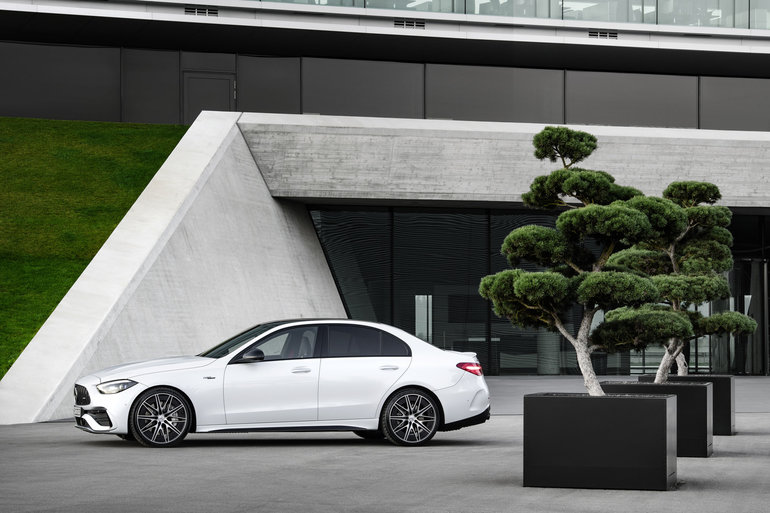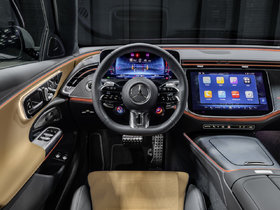From Performance to Luxury: Three 2024 Mercedes-AMG C 43 Features You Can't Ignore
August 29 2023,

Cars have always been emblematic of the times they emerge from. Once a symbol of raw power and freedom, modern automobiles are now complex networks on wheels, embodying cutting-edge technology and a global demand for environmental responsibility. Let's journey through three transformative changes that are driving the auto industry forward.
- Sustainable Power: Charging Ahead with Green Energy
Gone are the days when high-octane fuel was the primary motivator for speed and endurance. In this era, green is the new fast. The transition from gasoline to electric has turbocharged the mission for a sustainable future.
Electric vehicles (EVs) have not only made a decisive impact on reducing carbon footprints but also presented unexpected advantages. The silence of an EV cruising down the highway, the impressive torque right from a standstill, and the reduced mechanical complexity are redefining the way we perceive power and performance. Furthermore, with improvements in battery technology, EVs are shedding their ‘range anxiety’ tag, making long-distance trips as feasible as their gas-guzzling counterparts.
- Enhanced Connectivity: Cars That Talk to Everything
Remember when in-car entertainment meant radio or maybe a CD player? Times have changed. Today's vehicles are essentially sophisticated computers on wheels, connected to the Internet, infrastructure, and even to other cars. This level of connectivity offers more than just streaming your favorite playlist or getting real-time traffic updates.
With vehicle-to-everything (V2X) communication, cars can ‘speak’ to traffic lights to optimize flow, or warn a driver of a pedestrian crossing the next corner. They connect to home networks, starting your coffee machine as you pull into your driveway. It's not just about entertainment or convenience—this technology can reduce accidents, ease traffic congestion, and even save lives.
- Advanced Driver Assistance Systems (ADAS): A Copilot for the 21st Century
Navigating the roads is becoming less of a solo task. Enter ADAS—a suite of systems that assists drivers in the driving process. From adaptive cruise control, lane departure warnings to automatic emergency braking, these systems are designed to complement human driving skills.
Some critics argue that ADAS might make drivers too reliant on technology. However, when used responsibly, these systems can significantly enhance safety. By reducing the likelihood of human error—a leading cause of accidents—ADAS ensures that roads become safer for everyone.
Conclusion
The cars of today are more than just a means of transportation; they’re a testament to how far human innovation has come and a glimpse into a future full of promise. As sustainable power paves the way for a cleaner planet, enhanced connectivity ensures we're always plugged into what's essential, and ADAS keeps our journeys safer, the automotive industry continues to evolve, promising exciting times ahead for auto enthusiasts and everyday drivers alike.





